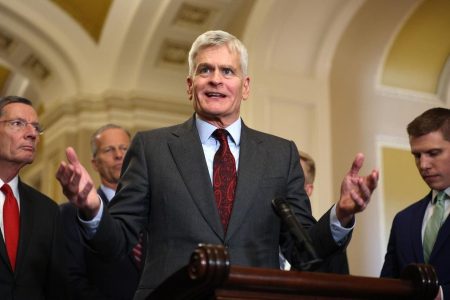The “Residence-Based Taxation for Americans Abroad Act,” recently introduced by Representative Darin LaHood, proposes a fundamental shift in how the United States taxes its citizens living overseas. This legislation aims to replace the current citizenship-based taxation system, which taxes citizens on their global income regardless of their residence, with a residency-based system, mirroring the approach of most other countries. This change represents a potentially significant reprieve for American expatriates who have long struggled with the complexities and burdens of complying with U.S. tax laws while residing abroad. The bill’s introduction has reignited a debate about tax fairness for Americans overseas, a conversation that has persisted for years but has yet to yield legislative success.
The current U.S. tax system stands as an outlier in the international community. While most countries tax individuals based on their residence, meaning income earned outside the country by non-residents is generally not taxed, the U.S. requires all citizens, even those living permanently abroad, to file U.S. tax returns and report their worldwide income. Although provisions like the foreign earned income exclusion, the foreign housing exclusion, and foreign tax credits exist to mitigate double taxation, they do little to simplify the often cumbersome and expensive process of complying with U.S. tax regulations. This complex system places a significant burden on American expatriates, requiring them to navigate a labyrinth of tax forms and regulations, often with the assistance of specialized tax professionals, adding to the financial strain of living abroad. The proposed legislation seeks to address these challenges by aligning the U.S. tax system with the internationally accepted norm of residence-based taxation.
The proposed Residence-Based Taxation Act offers a clear pathway for Americans living abroad to transition to a residency-based tax system. Under the proposed framework, qualifying expatriates would be treated as non-resident aliens for U.S. tax purposes, subject to U.S. tax only on income sourced within the United States. This transition, however, is not automatic and involves strict criteria. Individuals seeking to opt into the new system must certify, under penalty of perjury, their full compliance with U.S. tax obligations for the five years preceding their application. This requirement presents a potential hurdle, particularly for “Accidental Americans” – individuals who acquired U.S. citizenship through birth or parentage but have limited ties to the country and may be unaware of their U.S. tax obligations. Applicants must also provide the IRS with proof of foreign residency, culminating in the issuance of a certificate of non-residency. The election, once made, is generally irrevocable, and individuals must maintain their non-resident status to remain eligible under the new system.
The benefits of opting into the residence-based system extend beyond simplified tax filing. Individuals would be exempt from numerous U.S. tax reporting requirements, including those imposed by the Foreign Account Tax Compliance Act (FATCA). FATCA, designed to combat tax evasion, mandates that foreign financial institutions report information on U.S. account holders to the IRS. This has led many foreign banks to refuse service to American clients, creating significant banking challenges for expatriates. Under the proposed legislation, foreign banks, upon presentation of the IRS-issued certificate of non-residency, would no longer be required to report on these individuals, potentially easing access to banking services for Americans abroad. This provision aims to alleviate the difficulties many Americans face in opening and maintaining bank accounts in their country of residence.
The legislation also addresses specific circumstances for certain groups. Americans born abroad would automatically fall under the new system unless they establish U.S. residency. Wealthy individuals, defined as those with a net worth exceeding the estate tax exclusion amount (currently $13.61 million, but slated to decrease in 2026), would be subject to a “departure tax” upon opting into the residency-based system. This tax, calculated on the deemed sale of their worldwide assets at fair market value, aims to capture potential capital gains that would otherwise escape U.S. taxation. Notably, green card holders appear to be excluded from the new system, likely due to their closer ties to the U.S. and the requirement to maintain U.S. residency for immigration purposes.
The future of the Residence-Based Taxation Act remains uncertain. While mechanisms like the departure tax and application fees could offset potential revenue losses, the bill’s overall fiscal impact is still being assessed. Representative LaHood is actively seeking bipartisan support, but with the current congressional session nearing its end, significant progress before the new Congress convenes in 2025 appears unlikely. The bill has been met with enthusiasm from expatriate advocacy groups, who view it as a long-overdue reform. However, a similar proposal in 2018, the “Tax Fairness for Americans Abroad Act,” failed to gain traction, highlighting the political and logistical challenges that lie ahead. Concerns about revenue impacts and enforcement mechanisms are likely to resurface, echoing the debates that surrounded the previous attempt at reform. Whether this latest effort marks a turning point in U.S. tax policy for citizens abroad remains to be seen. The introduction of the bill, however, signals a renewed push for change and keeps the conversation about tax fairness for American expatriates alive.










